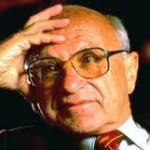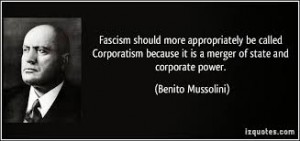My first look at this book (and its author, John Ralston Saul) was here, and the first and second chapters were summarized – in 500 words or fewer – here and here. Wow. I’ve been two months getting to this chapter since the last one. Sorry.
The middle lecture of the 1995 series of five Massey speeches was titled “From Corporatism to Democracy”. If you have read some John Ralston Saul, or even my previous summaries, you won’t be surprised at his opposing of these two currents of civilization. Indeed, much of The Unconscious Civilization dwells on the insistent, apparently inextinguishable rise of corporatism – the elite groupings that oversee the manipulation of capital – and its constant undermining of the democratic process and principles which Western nations allegedly hold dear. (I resisted using the word “zombie” in that last sentence. Decorum, and so on.) However, corporatist “self-interest” erodes the “disinterest” that broad expressions of conscious citizenship produce, which are aimed toward the general good. Saul defines such thoughtful, big-picture citizenship as the expression and the consequence of humane individualism, which he contrasts with bands

Milton Friedman, RIP. In 1995, Saul ridiculed his equation of democracy with capitalism, among other things. He is gone now, but his economic disciples remain strong.
of minority elites pursuing their corporate agendas.
As was done for the previous two lectures/chapters, here are 500 words that try to capture Saul’s argument:
- Individualism is not isolationism; we live in society, and “the most powerful force possessed by the individual citizen is her own government(s)”. This source of social legitimacy encourages citizenship; “gods, kings or groups” diminish it.
- Advocating reduced government for the sake of personal “freedom” puts “artificial limits on their only force”; the power vacuum will be filled by corporate interests and their bureaucracies.
- Hume’s assertion that people are “governed by interest” is misused by advocates of market forces to “suggest that the public good is a fiction”. Hume urged civic duty as a replacement for the superstitious rule of the Church, not to substitute the marketplace as a new deity.
- Democracy is independent from economic theories, and citizens (and governments) must not become corporate subjects.
- In the rise of humanism, “democracy and individualism have advanced in spite of and often against specific economic interest”, while anti-democratic corporatism is always aligned with economic power. Market theorists and demagogues like Mussolini share an “inability to see the human as anything more than interest-driven…[or] to imagine an actively organized pool of disinterest called the public good”.
- Market ideologues attack and dismantle the so-called “nanny state”, much as the early-20th century Fascists tried to: “we are witnessing…[corporatism’s] third or fourth run at power in a little over a century” [1995].
- “We are now in the midst of a coup d’état in slow motion. Democracy is weakening…[and] corporatism is strengthening”. Citizens are mainly unconscious bystanders. President Clinton was elected with the platform of reforming American health-care but “he was prevented…by the corporatist structure. Can we say that such a country is functioning as a democracy?”
- Corporate lobbying undermines public confidence in elected representatives. Popular culture represents politicians as corrupt and venal, and whether or not this is accurate, “the corporatist system wins either way: directly through corruption and indirectly through the damage done to the citizen’s respect” for democracy.
- “Reason”, invoked repeatedly by market economists and the Pentagon, leads to unreason when it is exalted to “a state of divinity”. So-called reason fosters
specialization, “fact collecting”, and a mechanized, “small-picture” managerialism. Cost-cutting by governments is trumpeted as the only solution, despite such measures having failed in the private sector. Corporatism focusses on form, method, but pays inadequate heed to content: what is good?
- In liberal democracies where much social good has been gradually engineered, we are “engaged in an unconscious process which can best be described as slow, masochistic suicide”, in the name of economic Reason.
- False democracy: cynical national governments download civic responsibilities to lower levels, minus funding guarantees or universal welfare standards; referenda purportedly allow people their say, but only about simplistic matters, the illusion of participation. Important decisions are made among elite interest groups.
- Democracy is falsely conflated with capitalist economics: “The world today is peppered with authoritarian market-based societies where Adidas, fine cooking, sexual pleasure and higher education prosper”. Are citizens able to exercise their due powers and responsibilities?
All right, then. Economic theory and social good. It’s a party! It’s a clash of civilizing perspectives! In the fourth lecture, “From Managers and Speculators to Growth”, John Ralston Saul outlines the economic changes that he said, and says, that we need, and how they are not actually as far-out and unimaginable as we might — unconsciously — fear.

